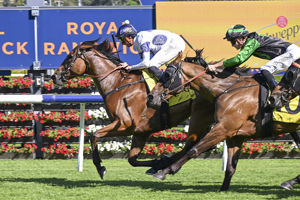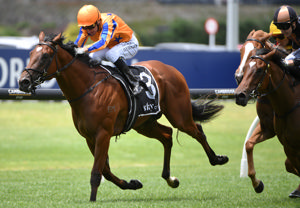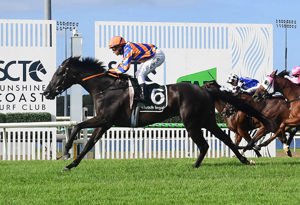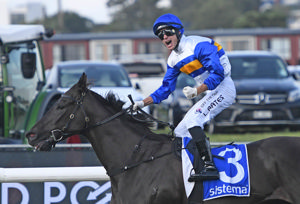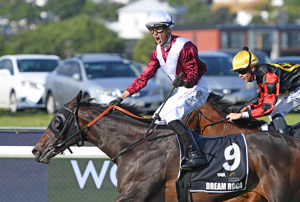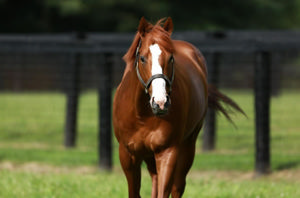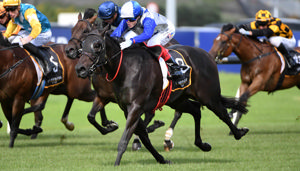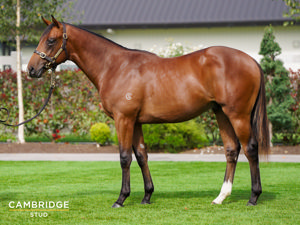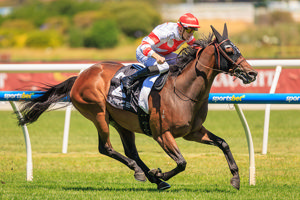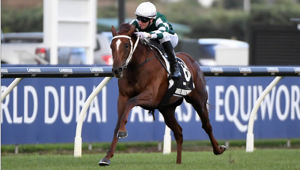A major review into racehorse welfare has called for the development of national welfare standards that would protect thoroughbreds at all stages of their lives.
The report, The Most Important Participant: A Framework for Thoroughbred Welfare, was written by a panel of four experts, chaired by former Victorian premier and veterinarian Dr Denis Napthine AO, and followed an extensive public consultation with industry and community groups.
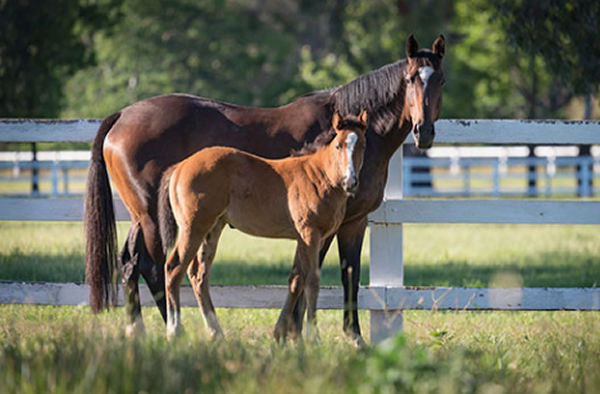
Among the review’s other key findings was the need for the racing and breeding industry to take a national approach to welfare, to ensure thoroughbreds receive a consistent level of care in all States and Territories.
The independent review – which was commissioned and funded by industry participants - has already received the backing of key stakeholder groups, including the national bodies representing breeders, trainers and jockeys.
There are 46 recommendations in the comprehensive report, with some for governments to implement while others are the responsibility of the thoroughbred industry. The review calls for:
Responsibility: The thoroughbred industry should take all reasonable steps to ensure its horses have a good life, including after racing, and a humane death.
National Standards: Governments should develop, with the support of industry, national standards for all horses (not just thoroughbreds). This would mandate minimum care for horses at all stages of life, including for thoroughbreds after they exit racing and breeding. Areas covered by these standards would include end of life and transportation. Other species such as cattle and sheep have enforceable welfare standards, but these do not yet exist for horses
Industry Standards: The industry should develop its own national welfare standards for all thoroughbreds. These would set a higher bar than the recommended standards for all horses (see above) and would make clear to all participants, as well as the public, the minimum acceptable levels of care for thoroughbreds in the industry. Additionally, the industry should develop quality assurance (QA) schemes to drive best practice.
Traceability: Governments should create a national traceability register for all horses, which identifies each horse individually, as well as its location and owner. This would allow the thoroughbred industry to know where its horses are in retirement. Without such a register the expert panel said it was almost impossible to have an effective whole-of-life welfare regime.
Transition: The industry needs to invest more in developing programs to help thoroughbreds find new careers after retirement, to extend the positive opportunities that are already being created. Moving thoroughbreds into good homes or a purposeful second career is vital to ensure the long term welfare of these horses. More investment also needs to be put towards stimulating demand for thoroughbreds.
Safety Net: The industry should establish a national thoroughbred safety net to support horses at risk of a poor welfare outcome after leaving racing and breeding. Such a safety net would allow the industry to help those horses over which it no longer has jurisdiction. The report points to successful overseas programs to demonstrate what can be achieved..
A National Body: The report proposes a national body with the sole task of improving welfare, which would help coordinate policy, run programs to stimulate demand for thoroughbreds, run QA schemes, and communicate to the public about welfare. This organisation - with a proposed name of Thoroughbred Welfare Australia – would be supported by the industry and would not be a regulatory body or have enforcement powers.
The panel received more than 180 submissions from a wide range of people and organisations, including industry participants, racing authorities and welfare groups. More than 50 consultation meetings were also held as the panel conducted its work.
As well as Dr Napthine, other members of the group included Dr Bidda Jones AM, head of science at RSPCA Australia; Dr Ken Jacobs, former president of Equine Veterinarians Australia and Jack Lake, an expert in agricultural policy, and special advisor in this area to three Prime Ministers.
Dr Napthine said: “A key finding is the need to develop a framework so that there are standards to ensure thoroughbreds are well cared for from birth right through to their death.
He added: “There is also a need for a more consistent national approach and this could be achieved by establishing a body with the sole focus of driving better welfare across every state and territory.”
Research commissioned as part of the review demonstrated that more Australians were opposed to racing and breeding than those who were supportive, with welfare the dominant concern.
Dr Jones said: “It was clear from our consultations there is strong backing from owners, trainers and breeders for the reforms required to ensure thoroughbreds have a good life, from birth to death. Now we need racing authorities to support these recommendations.”
Quotes from supporters:
Hugh Bowman, leading jockey: “I am grateful to the authors of the report and work they have done. It is now up to all of us in the industry to take these recommendations and implement them.”
Ciaron Maher, champion trainer: “There is nothing in this report that people in our industry should be frightened of. The panel have given us a plan, now it’s important we are working together to make it happen.”
Tom Reilly, CEO, Thoroughbred Breeders Australia: “Everybody involved in racing and breeding knows there’s been a huge amount of work done in welfare, but this report shows the areas where we need to improve. If we implemented the recommendations we would have a proper framework where our horses are protected from birth right through to death.”
Andrew Nicholl, CEO Australian Trainers’ Association: “It was important this review was conducted by people independent of the industry and the panel have given us a plan we must follow.”
Neil Wilson, Chairman Victoria Racing Club: “The committee of the VRC support the report’s recommendations and looks forward to broader engagement from other industry bodies to achieve the outcomes proposed.”
About the industry:
• The industry supports 80,000 full time jobs nationally.
• About $1 billion is raised from the industry in taxes annually.
• More than 100,000 Australians own a share in a racehorse
TBA Release

